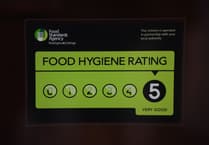Changes are set to be made to Powys County Council’s housing policy that will help deal with the rising problem of homelessness.
At a meeting of the council’s Cabinet tomorrow (Tuesday) councillors will be presented with a report suggesting tweaks to the “Homes in Powys” allocations policy to allow for the Powys Rapid Rehousing Transition Plan 2023-2028 to be part of it,
The rapid rehousing plan is a legal requirement from the Welsh Government to tackle homelessness.
The report said: “The plan sets out how the council and agencies across the public, private and third sectors will work together over the next five years to prevent homelessness.
“Where that is not possible, move people as swiftly as practicable through temporary accommodation and into settled accommodation.”
The report explains: “The council’s homeless service has seen unprecedented pressures in recent years due to a number of factors.
“These include the response to minimising the impact of the COVID-19 pandemic through the Welsh Government’s ‘Everyone In’ policy and an increasingly dysfunctional housing market in which the cost and availability of secure housing are increasingly challenging to those with low and medium incomes.”
Data included in the plan shows that the number of homeless presentations to the council has gone up year on year from 613 in 2019/2020 to 704 in 2020/2021, 833 in 2021/2022 and 856 in 2022/2023.
To deal with this the council has placed families in temporary accommodation including bed and breakfasts.
In 2019/2020, 90 households needed temporary accommodation, this rose to 200 in 2020/2021, with the rise continuing to 346 in 2021/2022 and 444 in 2022/2023.
This is a 394 per cent increase over the four-year period.
During 2022/2023 this cost the council £1.242 million.
The report said: “The projected number of households that will be placed in B&Bs during 2023/24 indicates a similar level of net cost despite an increase in special Welsh Government funding to help local authorities manage the rising levels of homelessness.”
According to the report early intervention is key to the plan.
This means that the council will set up of ‘Instant Access 24/7 Triage Centres.’
These would provide a “first point of contact” and where needed immediately available safe and secure temporary accommodation for those who are homeless.
The council will also need to set up two 24/7 “Supported Accommodation Schemes.”
These will provide supported, self-contained accommodation for those whose needs are sufficiently complex that they are not able to live independently in the community straight away.
The council would also increase the provision of temporary housing through using “Modular Interim Accommodation.”
If the proposals are agreed by Cabinet funding for some parts of the plan would be found from this year’s capital budget.
For other parts provision would need to be made in next year’s council budget and potentially Welsh Government grant funding.





Comments
This article has no comments yet. Be the first to leave a comment.